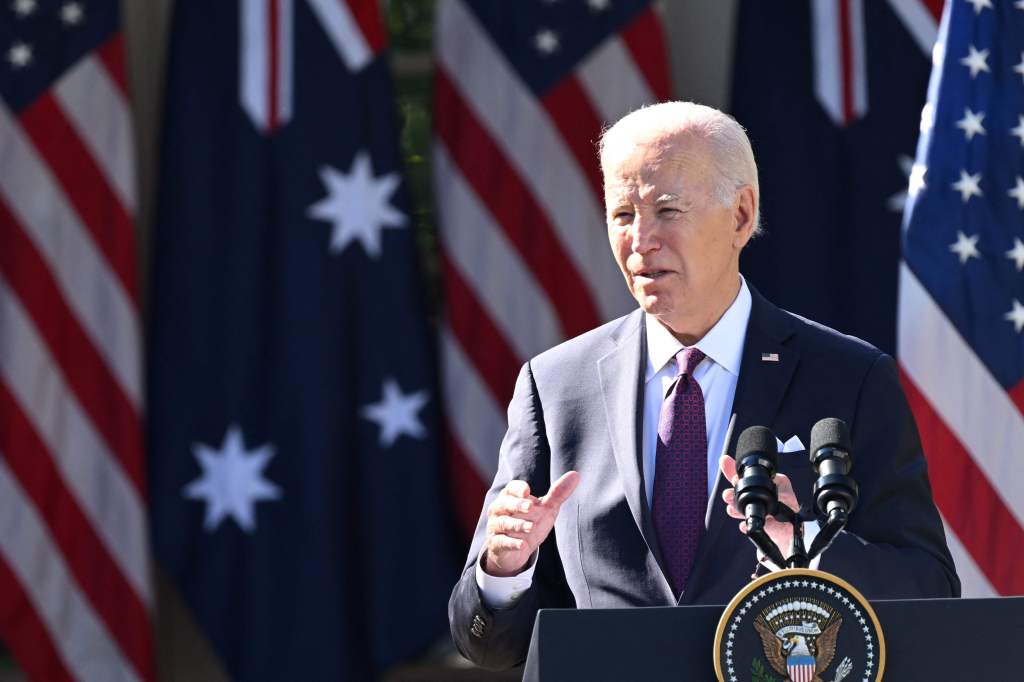Magazine scrubs sections of National Security Adviser Jake Sullivan’s essay praising Biden’s performance in the Middle East
National Security Adviser Jake Sullivan lauded President Biden’s “disciplined approach” to foreign policy that “reduces the risk of new Middle Eastern conflict” in sections of a magazine essay — which were helpfully edited out of the online version.
Sullivan’s faulty analysis, however, remains in the print version of his Foreign Affairs magazine article, which went to press five days before Hamas terrorists stormed Israel on Oct. 7, killing over a thousand people.
“Before this article was posted online, a passage in it about the Middle East was updated to address Hamas’s attack on Israel, which occurred after the print version of the article went to press,” an editor’s note at the bottom of the online version of Sullivan’s piece reads.
There are several outdated claims in the print version of Sullivan’s 29-page essay that the Biden administration official was allowed to revise before it was posted online.
Foreign Affairs attached a PDF version of Sullivan’s original writing at the end of its editor’s note.
“The Israeli-Palestinian situation is tense, particularly in the West Bank, but in the face of serious frictions, we have de-escalated crises in Gaza and restored direct diplomacy between the parties after years of its absence,” Sullivan wrote in one passage edited out of the online article.
When Biden, 80, assumed the presidency, “US troops were under regular attack in Iraq and Syria,” Sullivan wrote in the print version, later adding, “Such attacks, at least for now, have largely stopped.”
At least two dozen American military personnel based in Iraq and Syria were injured in drone attacks just in the last week that officials said were launched by Iran-backed proxy groups.
The Pentagon has said the groups behind the attacks are supported by Iran and its Islamic Revolutionary Guard Corps and it is possible there could be a significant escalation in the near term against U.S. forces and personnel in the region in the wake of Israel’s declaration of war against Hamas.

“Indeed, although the Middle East remains beset with perennial challenges, the region is quieter than it has been for decades,” Sullivan wrote in another section scrapped from the online version.
“The progress is fragile, to be sure. But it is also not an accident. At a meeting in Jeddah, Saudi Arabia, last year, the president set forth his policy for the Middle East in an address to the leaders of members of the Gulf Cooperation Council, Egypt, Iraq, and Jordan. His approach returns discipline to U.S. policy. It emphasizes deterring aggression, de-escalating conflicts, and integrating the region through joint infrastructure projects and new partnerships, including between Israel and its Arab neighbors. And it is bearing fruit,” he added.
In the edited, online version of the article, Sullivan describes Biden’s efforts in the region and states, “There was material progress” in the Middle East, suggesting that the progress may have been undone by Hamas’ attack and Israel’s subsequent declaration of war.
The White House official argues that the president’s approach to the region will not drastically change despite the recent attack on the Jewish state.
“The October 7 attacks have cast a shadow over the entire regional picture, the repercussions of which are still playing out, including the risk of significant regional escalation,” Sullivan writes. “But the disciplined approach in the Middle East that we have pursued remains core to our posture and planning as we deal with this crisis.”
Read the full article Here


